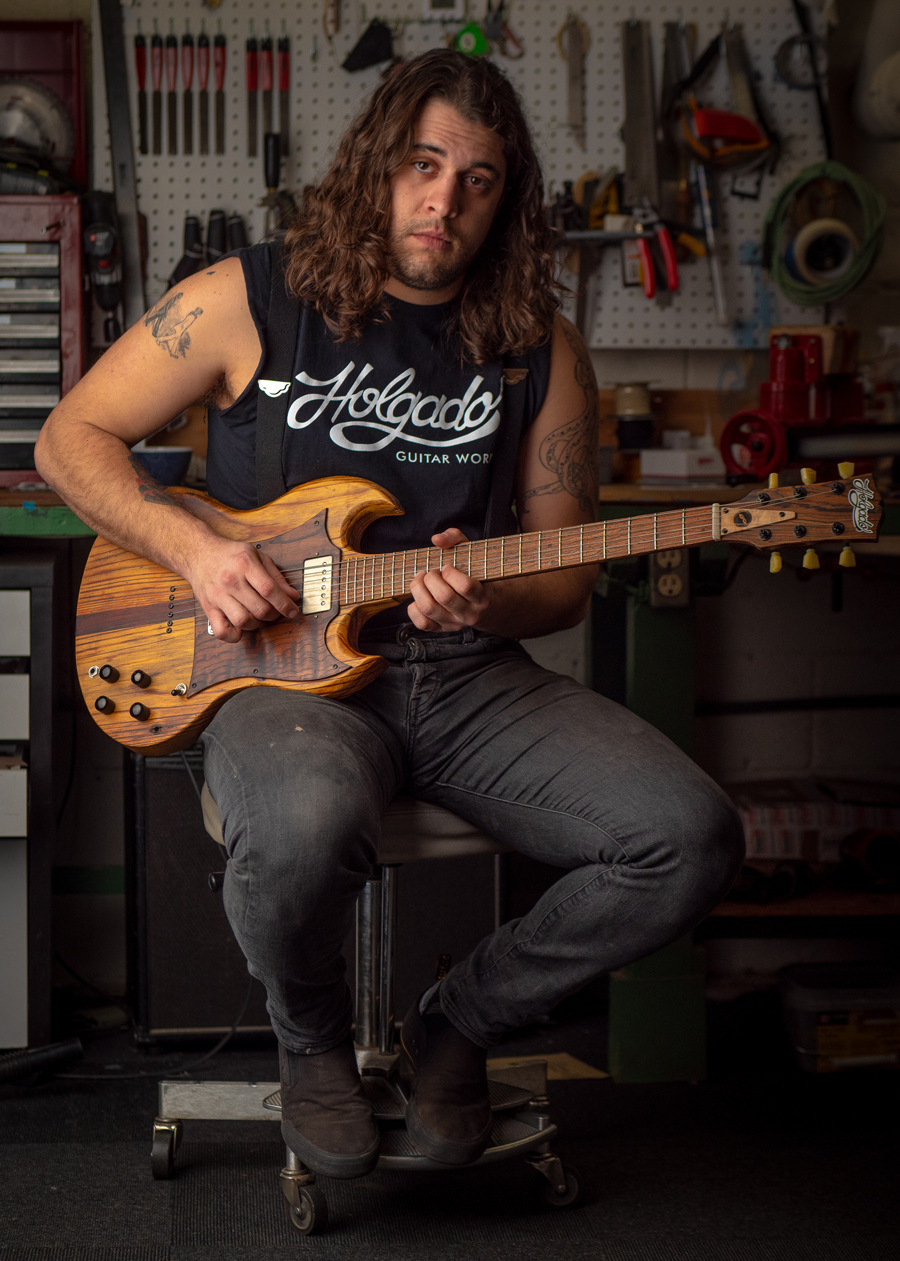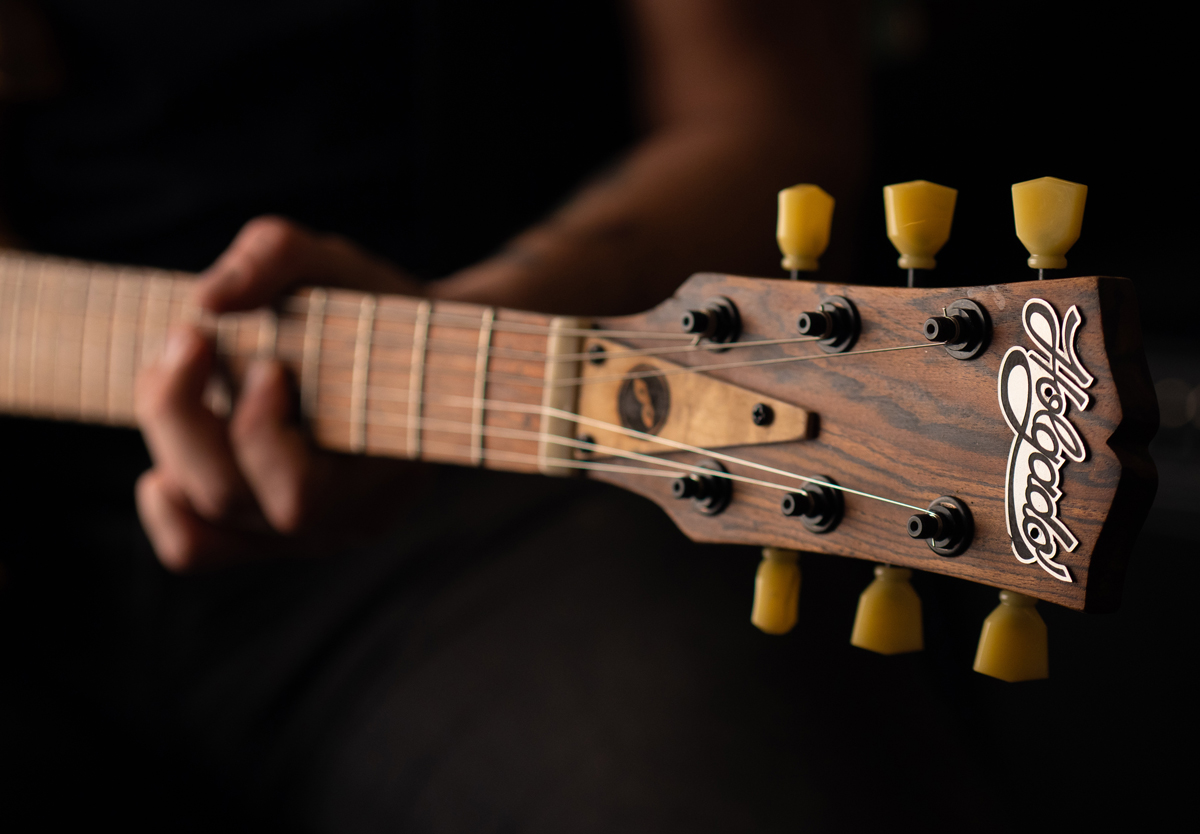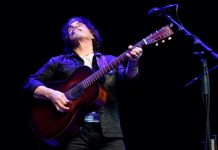
Photograph by Brock Scott
Argentinian-born Tomas Holgado was 14 years old the first time he stepped on stage at the Masquerade, one of Atlanta’s most iconic and scrappy venues. He played bass in his older brother’s band and recalls the floor of the uppermost of the venue’s three stages—named Heaven, Hell, and Purgatory—shaking as though if it would cave in at any moment. He recalls the moment of bliss that came with performing in front of a live audience and the pungent scent of booze, cigarettes, and sweat.
During Holgado’s youth, the North Avenue rock haven was located within the old DuPre Excelsior Mill, which for decades chopped wood slivers from logs to use as a packaging material. In 2016, the lot was purchased by developers Southeastern Capital Companies and Coro Realty with initial plans to convert the property into a mixed-use development called North + Line. In December 2019, the developers announced a new project for the Old DuPre Mill location: The Mill Marketplace, an office park.
The Masquerade venue, meanwhile, moved and inked a 10-year lease at Underground Atlanta in 2017, but the previous location’s nonhistoric buildings were set to be demolished in the redevelopment. Jay Clark, founder and CEO of Southeastern Capital Companies, previously said those who are worried about preserving the history of the 118-year old structure building shouldn’t be, because plans were to preserve the original flooring and columns. However, that was before the east wall of the mill partially collapsed during construction on December 27, 2019. The developers have since resumed construction and are working closely with the Atlanta Urban Design Commission and the Atlanta Department of City Planning to stabilize and restore the historic structure.
Holgado spent many late nights at the Masquerade attending shows, performing and later backstage as an employee for a company that supplied equipment to touring bands. He became good friends with the staff and management of the venue and when it came time for the big move in 2017, he was on site, lending a hand.
“We were using our trucks and helping [the Masquerade] move to their new location,” he says. “My mom sent me an email about this dude from New York who built guitars from buildings that were being remodeled that had incredible pine, similar to this stuff at the Masquerade—really old growth pine that’s dried inside for 100-150 years, which is unheard of. You can’t just buy that stuff.”
He decided to give it a shot and took a truckload of salvageable lumber pulled from the walls, floors, and railings home. So far, Holgado’s designed and built six guitars made from the Masquerade wood, and will make at least three more. He says the wood is covered in stains, scrapes and nail marks, but the imperfections are what carries on the venue’s legacy most.

Photograph by Brock Scott
“Going into it I didn’t know if the pieces of wood were going to end up actually sounding awesome or just being more memorabilia of the Masquerade,” he says. “It turned out sounding incredible. The wood is super solid, dense and stable—all things it could have not been—it was the best case scenario.”
The limited edition guitars aren’t sold for top dollar, rather, he bases his sales on merit, vetting potential customers with one question: “Why do you want this Masquerade guitar and not just any other guitar?”

Photograph by Brock Scott
But beyond the Masquerade guitars, Holgado has a full-service shop he runs from his home in Decatur, Holgado Guitar Works. There, he builds, repairs, and does other craftsmanship work on string instruments. The shop guarantees same-day repairs, which he says is a rarity in the music industry. Customers often hang around the shop while he works, strumming on one of the many guitars on display or cozying up with his rottweiler, Georgia.
“I’m halfway a therapist and halfway the guitar tech,” he says. “I get the Pawn Stars kind of feel because I get every sort of character in here, from heartwarming to heartbreaking. We call it the center for deprived rock ‘n’ roll musicians.”

Photograph by Brock Scott
He also has his own line of guitars, Holgado Handmade Guitars, which are crafted exactly to customer specifications, take between two and three months to make, and cost between $1,500-$2,000.
“Building guitars has affected everything I do in every sense,” he says. “I’ve become more of an old man—careful, woodworky, finicky, and picky. Translating that to playing music, it makes everything present itself a lot easier. There’s a lot more structure and it makes more sense.”
He’s seen the ebb and flow of the Atlanta music scene over the years, through both firsthand experience and through the lens of each musician that comes through his shop.
“Atlanta is becoming a little more uppity with the new, more expensive buildings,” Holgado says. “But the music scene is persistent. The Masquerade was scooted out and it persisted. There’s something for everyone who loves music in Atlanta and I see every sort of musician. It shows me there is no shortage of diversity and resilience in the music scene in this city.”













